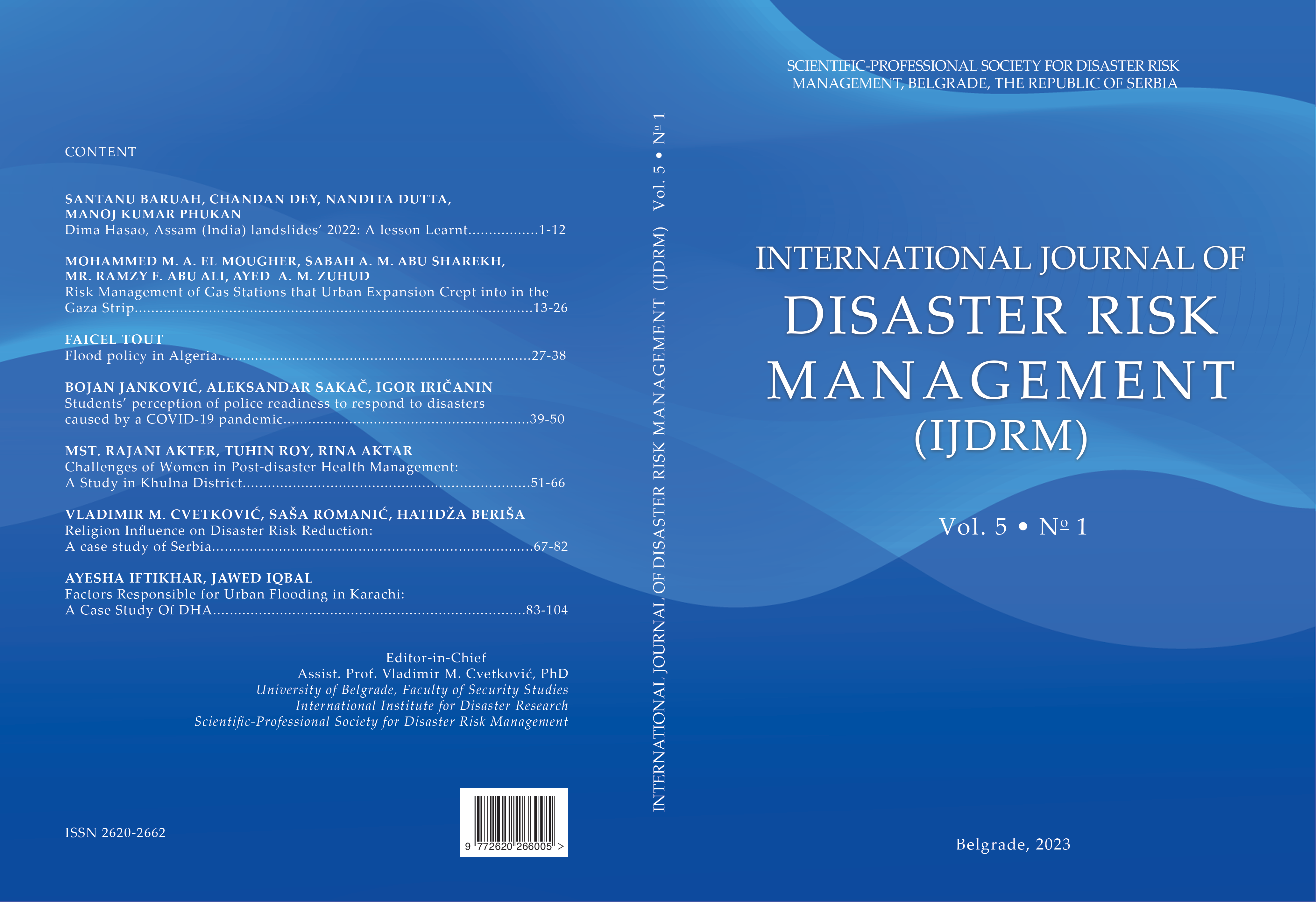Dima Hasao, Assam (India) landslides’ 2022: A lesson learnt
Dima Hasao, Assam (India) landslides’ 2022: A lesson learnt
Author(s): Baruh Santanu, Dey Chandan, Dutta Nandita, Manoj Kumar PhukanSubject(s): Social Sciences, Geography, Regional studies, Applied Geography, Sociology
Published by: Naučno-stručno društvo za upravljanje rizicima u vanrednim situacijama
Keywords: Dima Hasao Landslides; Resilience; Neo-Determinism; NE India; Community awareness
Summary/Abstract: During the monsoon season of 2022, the Dima Hasao district of Assam faced a series of landslides across multiple locations, resulting in significant damage to property and newly developed communication infrastructure. These landslides were caused by a combination of natural and anthropogenic factors. The region being host to one of the world’s wettest monsoon belts and under tremendous tectonic stress with sedimentary geological formation is highly susceptible to landslides. In addition to these natural factors, the construction of communication infrastructure and roadways may have contributed to destabilizing the slopes and increasing the risk of landslides. Excavation activities for the expansion of highways and the conversion of railway tracks to broad-gauge may have altered the natural slope dynamics, exacerbating the severity of the landslides. This paper explores the causes and consequences of the landslides from an environmental determinism and possibilism perspective. It argues for the optimization of the neo-determinism fine line by identifying remedial countermeasures to prevent or minimize the impact of future landslides in the area. Effective communication and collaboration among the government, non-governmental organizations, community leaders, and the public are essential for reducing the risk of natural disasters and promoting sustainable development in landslide-prone regions. The identified countermeasures have practical implications for disaster management and planning in similar regions globally.
Journal: International Journal of Disaster Risk Management
- Issue Year: 5/2023
- Issue No: 1
- Page Range: 1-13
- Page Count: 13
- Language: English

